Repointing vs Replacing Brickwork in Rittenhouse Square
That beautiful brick façade isn't going to fix itself; our Philadelphia masonry team is ready to restore your house, one joint at a time.
4 min read
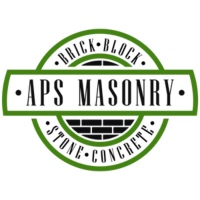 Alec Serowatka
:
Jul 24, 2025 9:41:56 AM
Alec Serowatka
:
Jul 24, 2025 9:41:56 AM
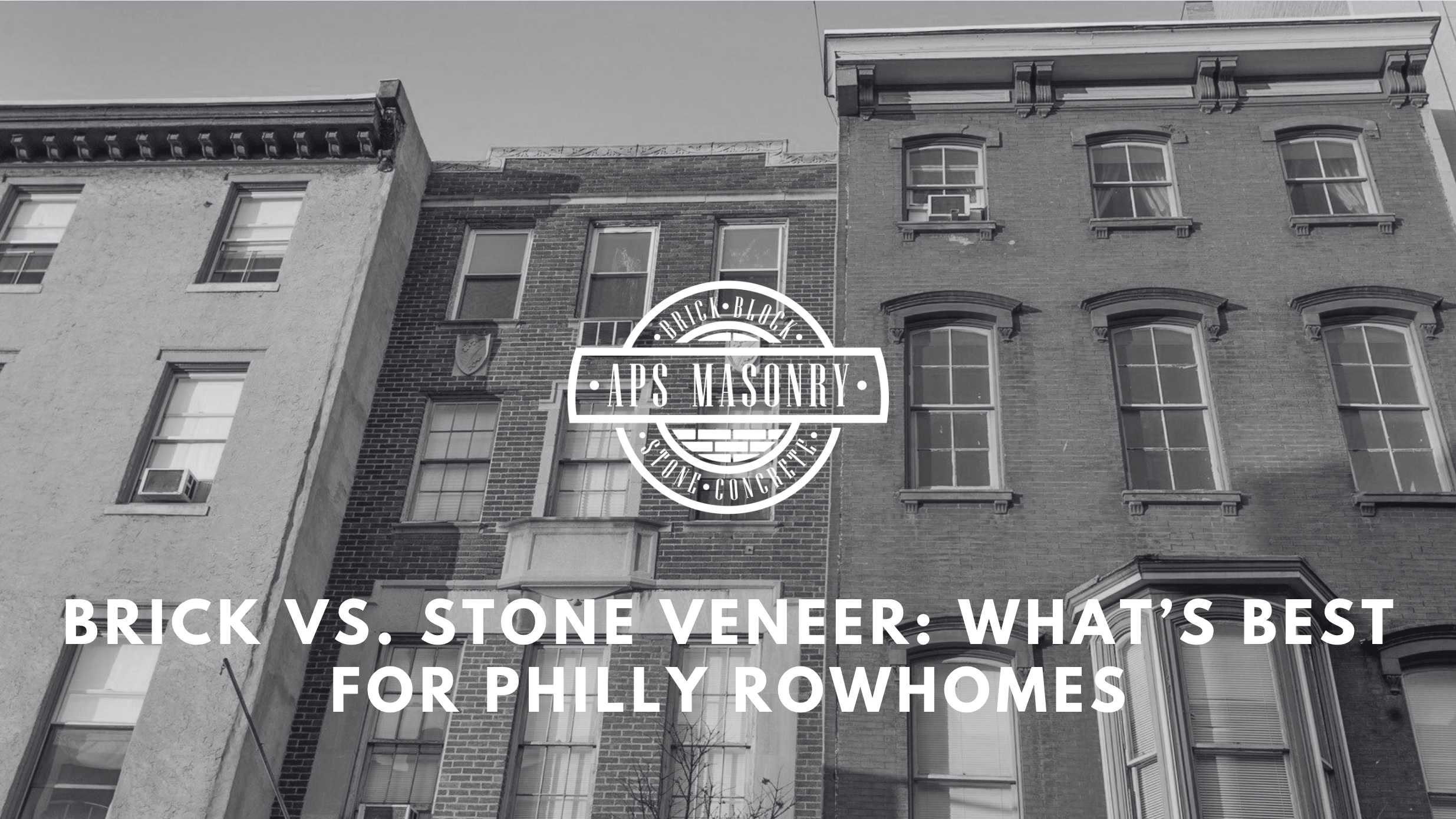
Brick builds legacy on Philly rowhomes while stone veneer creates options where weight, cost, or structure limit traditional brick construction.
Brick vs stone veneer — what’s best for Philly rowhomes depends on the property, not the trend. Brick veneer works with fire codes, holds structure, and keeps the classic look that defines a row house. Stone veneer adds flexibility, lower cost, and easier installation on framed buildings or existing siding.
Homeowners weighing stone veneer siding against traditional brick construction need to look at practical benefits. Manufactured stone veneer delivers curb appeal with minimal maintenance and excellent insulation. Brick siding offers unmatched fire resistance and long-term durability in dense urban areas. Each siding material comes with different energy efficiency, cost, and design options, and not every wall is ready for both.
Stucco, wood, or even metal might still be on older homes. Those surfaces may push the project toward manufactured stone or brick veneer depending on how the wall is built. Choosing the right material means less maintenance, lower utility bills, and a facade that works with the neighborhood.
Talk to APS Masonry Contracting about brick or stone veneer options that match your home’s structure, style, and long-term performance goals.
Stone veneer fits specific conditions on Philly rowhomes. It works best where brick isn’t possible: over stucco, old siding, or wood-frame additions. Many of these buildings have mixed exterior materials from decades of patch repairs. Stone veneer creates a consistent, finished facade without rebuilding the entire wall.
Manufactured stone veneer installs cleanly over block, concrete, or properly prepped wood sheathing. That makes it a practical choice for rear or side walls, where the original brick was never installed or has been covered by other materials.
On front elevations, stone veneer can frame large windows or wrap a front door to break up a flat brick surface. In a neighborhood where every house shares a wall, this creates a unique look without disrupting the style of the block.
Cultured stone and stone veneer siding come in various colors and finishes that pair with timber, metal, or even original brick. It’s an affordable option with aesthetic appeal, especially where regular painting and maintenance aren’t ideal.
Real stone is heavy, expensive, and difficult to install on a typical Philly row house. Most of these homes sit shoulder to shoulder, with shared walls, limited access, and foundations built for brick, not granite or other natural materials. That structure makes full stone a challenge, both in cost and in construction.
Installing natural stone siding usually means reinforcing the wall, adjusting footings, and bringing in equipment that can’t easily reach rear elevations or tight side yards. Even where access is possible, the extra weight adds stress that older buildings weren’t designed to carry.
Natural stone brings durability and natural beauty, but it’s rarely practical in dense urban areas like South Philly or West Philly. Homeowners looking for the aesthetic of stone without the structural demands often choose manufactured stone instead; it delivers a similar look with far less weight.
Historical home renovation contractors in Philadelphia
In a city where builders work with space constraints and tight budgets, real stone becomes more of a design exception than a standard siding material.
APS Masonry Contracting brings expert local knowledge to every project, combining your vision with our experience to create the right solution for your rowhome.
Manufactured stone fits the way Philly rowhomes are built. Most homes already have a mix of materials across rear and side walls: stucco, patched block, or older wood siding. These surfaces often aren’t suited to brick veneer or full-depth stone. Manufactured stone installs directly onto existing framing or concrete with fewer structural changes, making it a cost-effective solution in dense urban blocks.
For rowhouses that need visual contrast or updated curb appeal, manufactured stone gives homeowners more flexibility. It comes in various styles and finishes, replicates natural stone, and pairs cleanly with existing brick or timber details. Elements like columns, water tables, or partial facades can be wrapped in stone without rebuilding the wall.
The installation process creates an insulated envelope when installed over modern backer systems. That extra layer can improve energy efficiency and lower utility bills in older homes with thin exterior walls.
Minimal maintenance means no repainting, sealing, or weatherproofing for decades. That makes it a practical choice for busy homeowners and builders working within tight city footprints.
Some Rowhomes in Philly have true brick construction with solid masonry walls, while others have framed additions or mixed-material facades. Choosing between brick veneer and stone veneer starts with the structure. If the house already has a brick wall in good shape, it often makes sense to stay consistent with a classic look and proven fire resistant performance.
Stone veneer becomes the better fit where the wall is framed, patched, or already covered in siding. These are common conditions on rear walls, third-floor additions, or houses that have had previous work using stucco, wood, or even metal. Manufactured stone installs cleanly over those surfaces and offers broader design options when full brick isn’t possible.
On a block with original brick facades, homeowners may use stone veneer selectively: around the front door, at the base of the wall, or to contrast a neighboring house without clashing. This creates curb appeal while preserving the rhythm of the neighborhood.
Each siding option serves a purpose. Brick veneer maintains legacy and blends into older construction. Stone veneer gives flexibility, easier installation, and room for design changes without rebuilding the entire wall.
Brick brings a classic look that still holds up across Philly blocks. Stone veneer adds a rustic charm that pairs well with timber, metal, or siding. Each material gives different benefits and the right one depends on how the house was built, how the wall is shaped, and how much change the property can handle.
Stone siding retains its shape and color without regular painting. Brick construction holds structure and delivers fire resistance year after year. Unlike other materials, both options give practical benefits in urban settings: minimal maintenance, lower utility bills, and a style that fits the row house without covering its history.
Homeowners looking for natural light at the front, energy efficient walls at the rear, or a full facade refresh have real choices. Manufactured stone offers an affordable alternative to real stone. Brick veneer keeps the building anchored without taking on the cost of full rebuilds. Timeless elegance, excellent insulation, and lower cost are all possible with the right siding material, installed the right way.
APS Masonry Contracting builds with what works. Brick, stone, or veneer — done clean, built to last, and matched to your rowhome the way it should be. Contact us today!
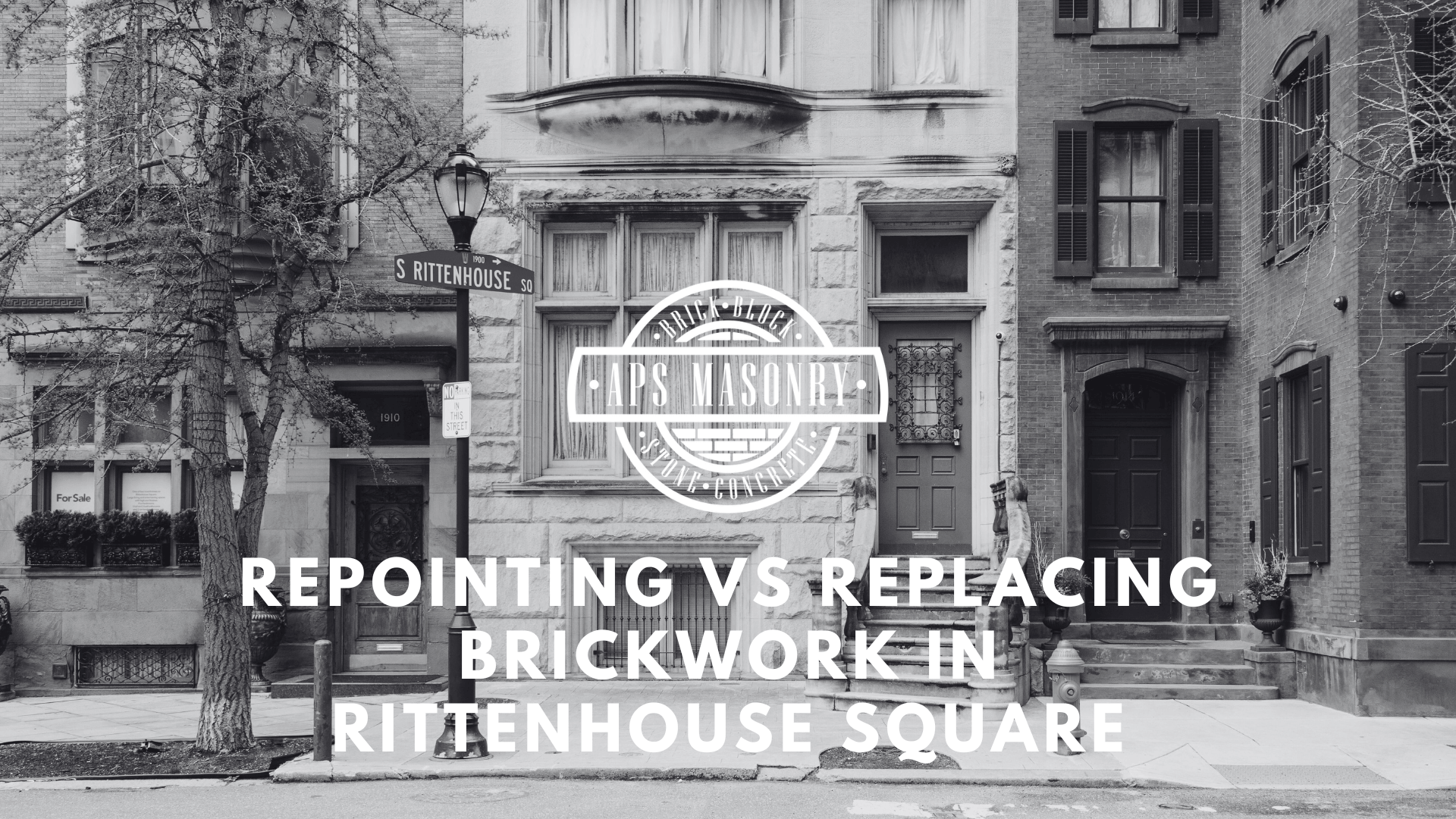
That beautiful brick façade isn't going to fix itself; our Philadelphia masonry team is ready to restore your house, one joint at a time.
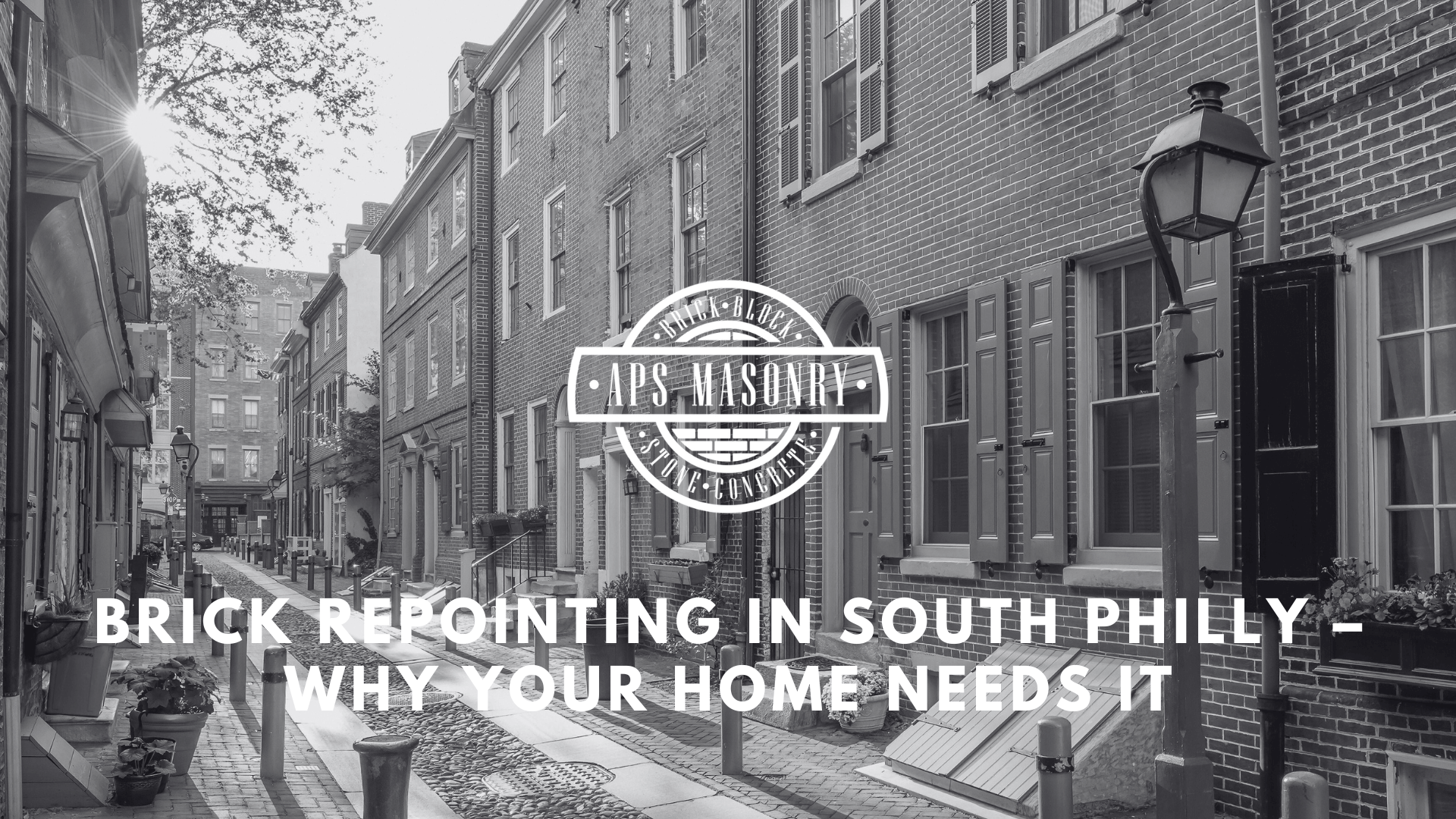
Cracked joints, loose mortar, and worn brickwork don’t fix themselves. Repointing protects your South Philadelphia home before the structure pays the...
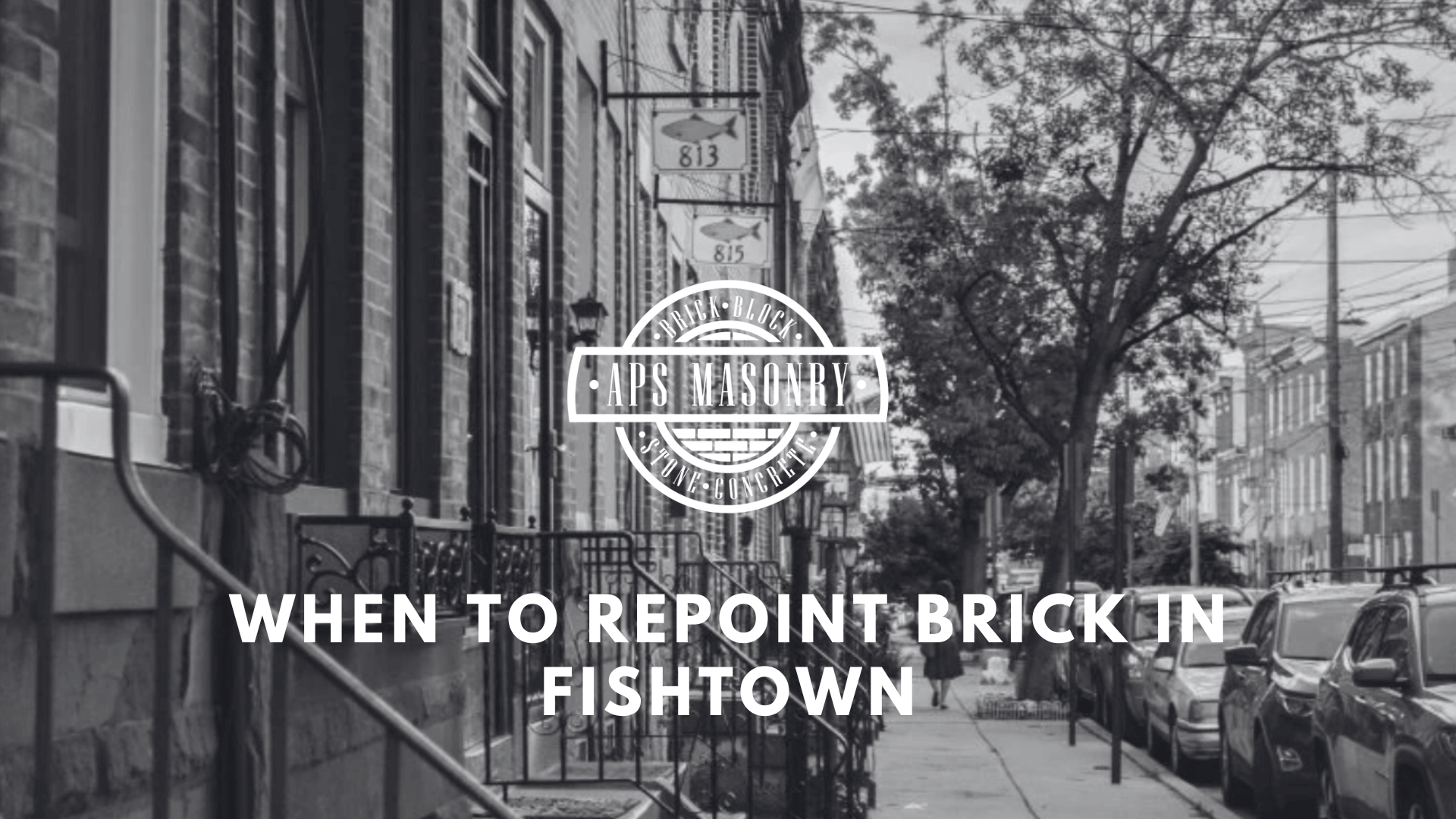
Philadelphia brick is tough. Fishtown brickwork is tougher.